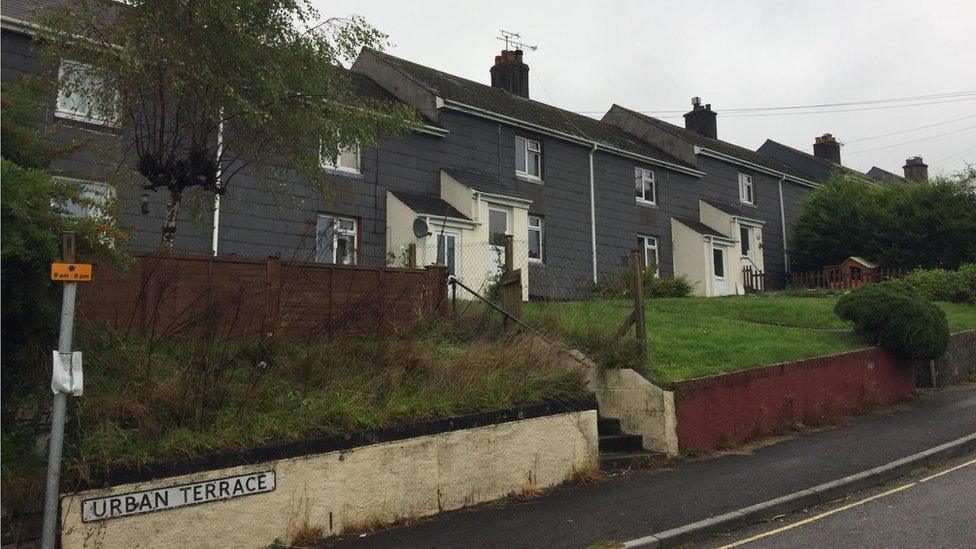New homes replace 15 ruined by 'concrete cancer'
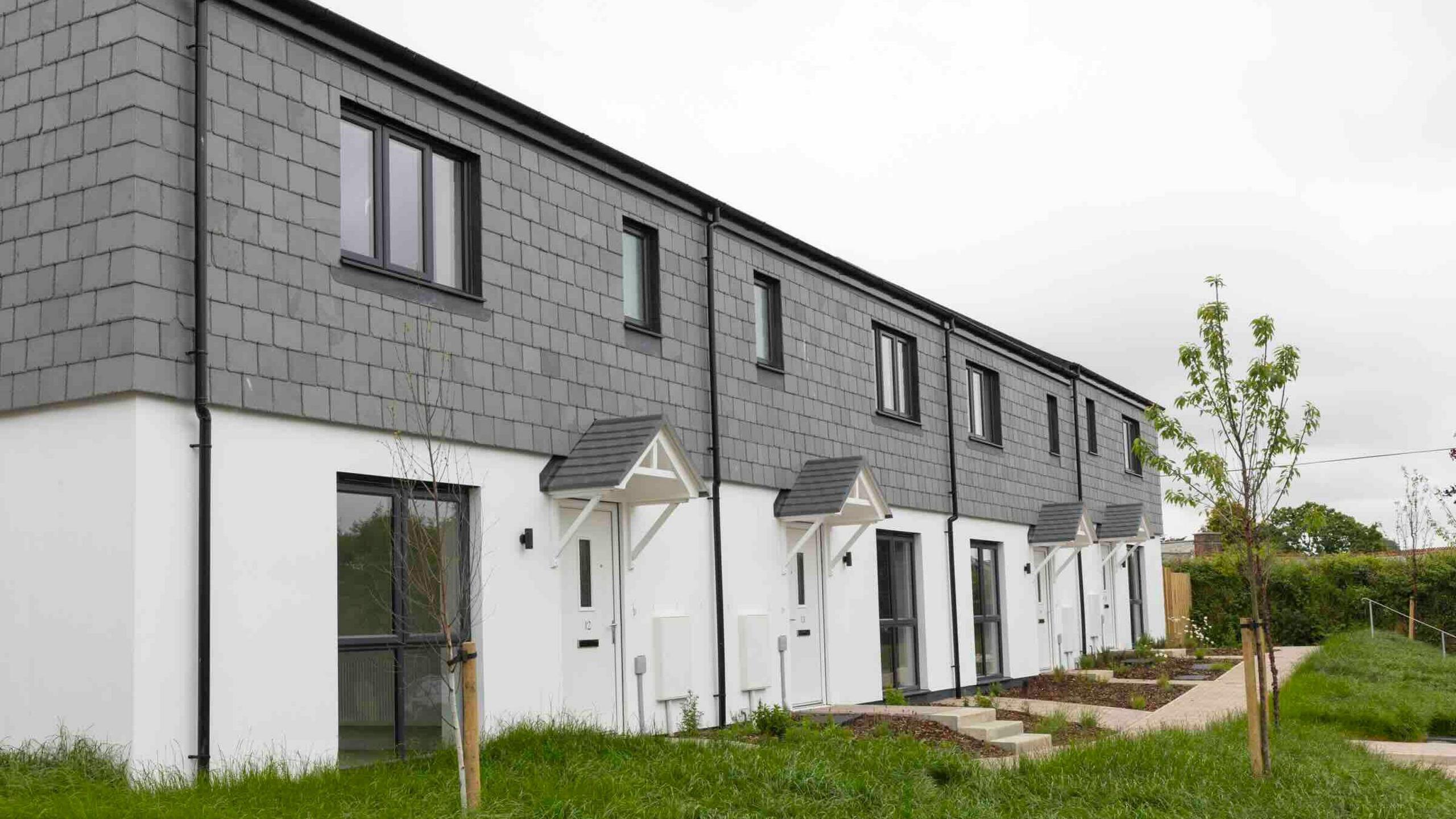
The new homes replace 10 council-owned and five privately owned homes built in the 1950s
- Published
People evacuated from their homes after a severe case of "concrete cancer" was discovered in 15 properties have moved in to newly-built houses on the same site.
After reports of damp in the properties, surveys were undertaken in Callington, Cornwall, and cases of mundic block were found.
The houses at Urban Terrace were found to be unstable, unsafe to live in and they were demolished.
One resident said it meant "everything" to be back under a roof of their own.
'Absolutely amazing'
The new homes replace 10 council-owned and five privately-owned homes built in the 1950s.
Mundic block occurs in concrete blocks made using waste rock from mining, quarrying or beach gravel, leading to structural weaknesses.
Sulphide minerals - often found in mined or quarried rock - can oxidise under damp conditions, creating sulphuric acid.
Fine-grained rocks from the ocean floor can expand when exposed to moisture, while traces of coal from mines can also cause cracking when wet.
One resident who has moved back in said: "I think it’s absolutely amazing.
"It's a beautiful house and well worth the wait. It means everything to us to come home."
Olly Monk, Cornwall Council portfolio holder for housing and planning, said people who lived in the original council-owned properties had been given first refusal on the new homes.
He said the new homes had renewable energy sources and high levels of insulation and were "much more cost-effective to run, and provide safe, secure and healthy places for residents".
The new scheme includes four one-bedroom flats, seven two bedroom houses and four three-bedroom houses with gardens and parking.
Follow BBC Cornwall on X (formerly Twitter), external, Facebook, external and Instagram, external. Send your story ideas to spotlight@bbc.co.uk, external.
Related topics
Related stories
- Published17 May 2022
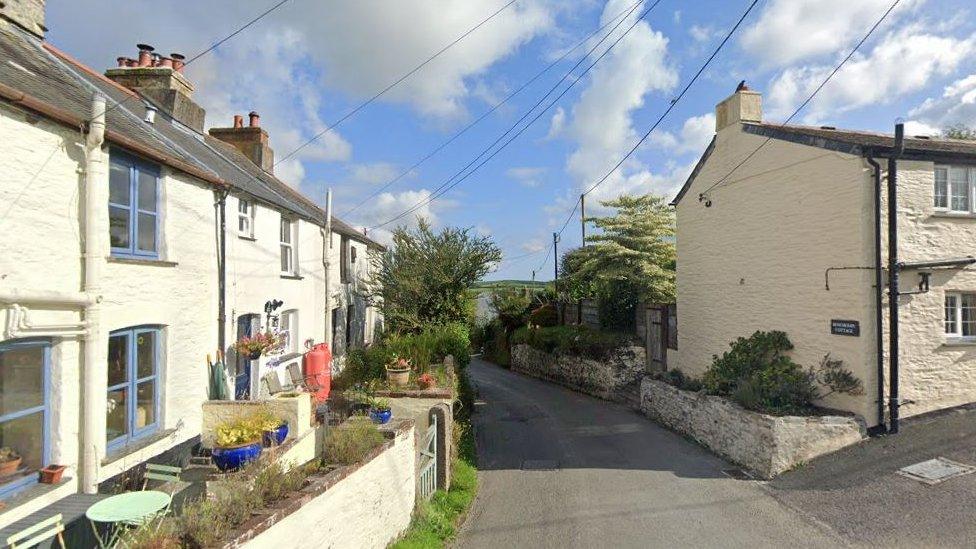
- Published9 July 2024
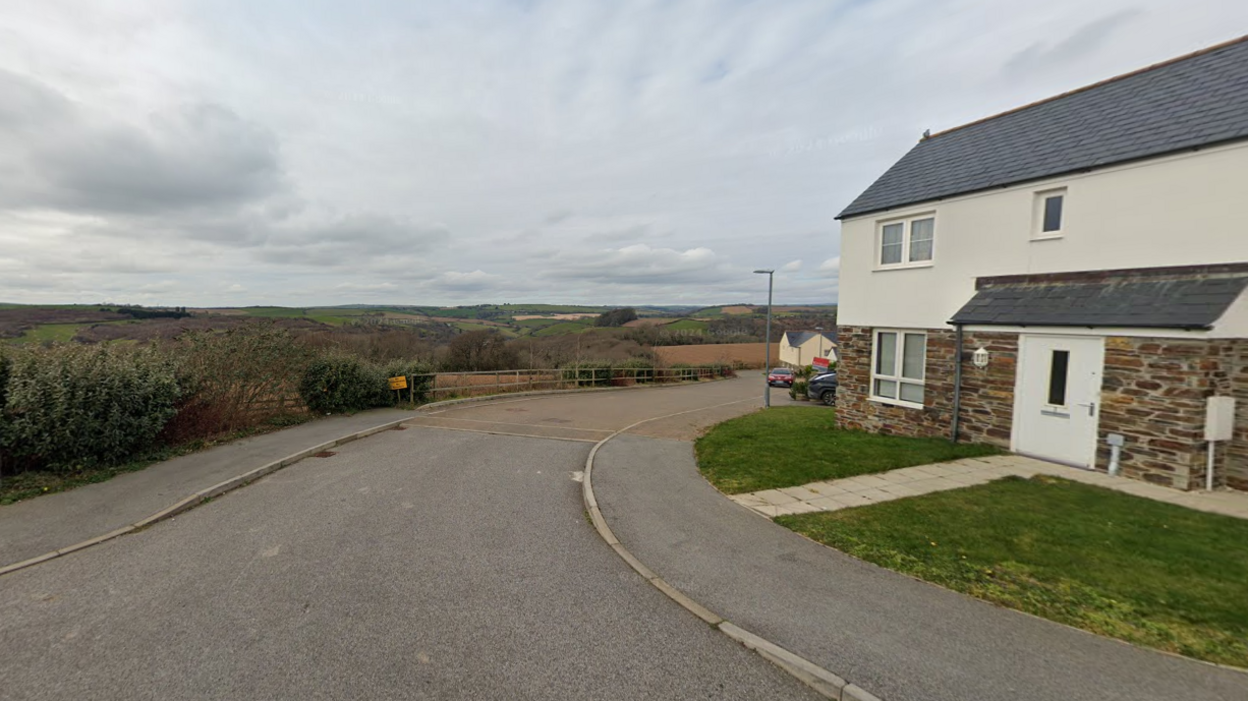
- Published19 July 2023
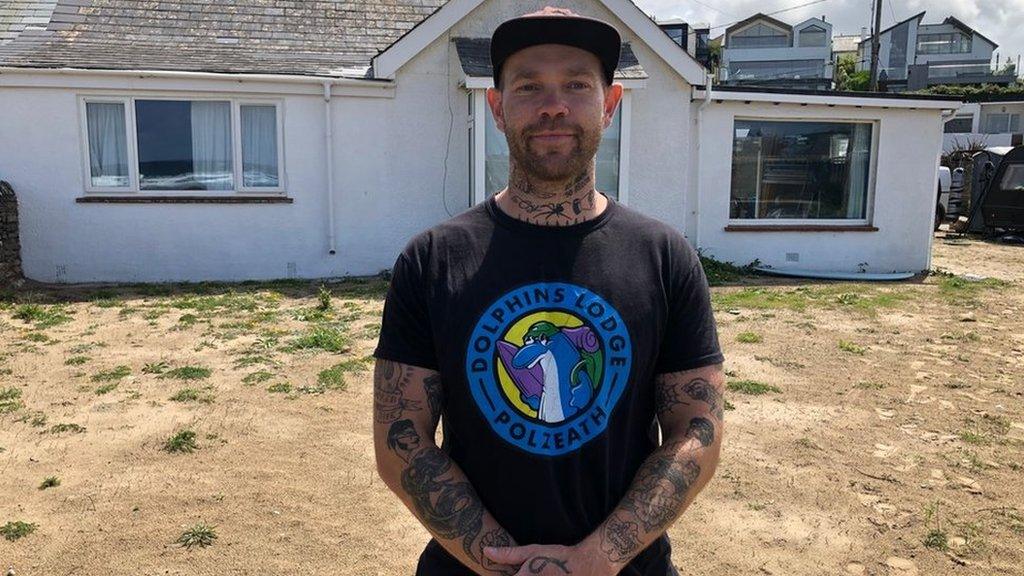
- Published20 September 2018
